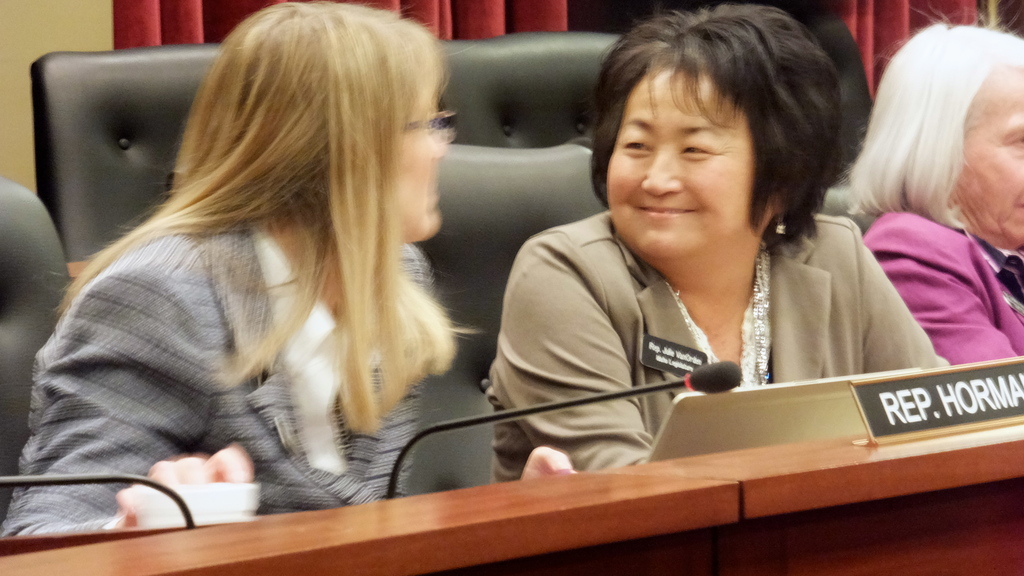The chairmen of the Legislature’s two education committees think Monday’s shorter-than-expected listening session bodes well for setting education policy.
Monday’s open opportunity for citizens to speak out on education issues was booked for the Statehouse’s largest hearing room and scheduled to last two hours. Instead, only six people wished to testify and the meeting was adjourned after 75 minutes.

Karen Echeverria, executive director of the Idaho School Boards Association, set the tone for the meeting by issuing a joint statement supporting all of the recommendations issued by Gov. Butch Otter’s Task Force for Improving Education. Echeverria said she spoke on behalf of her organization, as well as the Idaho Education Association and Idaho Association of School Administrators – groups that have disagreed in the past but stand united on the recommendations.
“We support the recommendations as a package,” Echeverria said. “We know that transforming our system will require significant changes…. (The recommendations) are not a menu from which to chose things we like and ignore the others.”
Lawmakers pushed and prodded over how to implement the recommendations, which could cost $400 million and take five or more years to implement. But Senate Education Chairman John Goedde, R-Coeur d’Alene, said the agreement of three organizations “gives me some comfort we might be moving in the right direction.”
Mike Vuittonet, a member of the Meridian Joint School District No. 2 school board, also backed the recommendations. He urged lawmakers to pay special attention to districts’ financial needs and restore cuts to operations budgets.
He testified that districts still rely heavily on voters to approve supplemental levies to help them make ends meet. If those levies fail, Vuittonet warned, many districts have no safety net.
“We are not out of the woods, we are not out of financial crisis,” Vuittonet said.
Two charter school supporters, Sage International School Principal Don Keller and Coalition of Idaho Charter School Families manager Jane Wittmeyer, pushed for equitable school funding reform. Keller called on lawmakers to fund the system equally, not based on the wealth of a district’s residents.
“We need to rethink entirely how Idaho public schools are funded,” Keller said.
After the meeting, House Education Committee Chairman Reed DeMordaunt, said there were two reasons the meeting was short and mostly agreeable. First, last week’s Common Core hearing gave citizens a chance to ask questions on that issue, he said. Secondly, widespread agreement on the recommendations means there were fewer people to raise issues with education concerns, he said.
“The fact those three stakeholders are on the same page, that’s kind of indicative of the unanimity we’re seeing in terms of what this road looks like ahead of us,” DeMordaunt said. “That’s perhaps why we didn’t have the numbers out that we’ve had in the past.”
